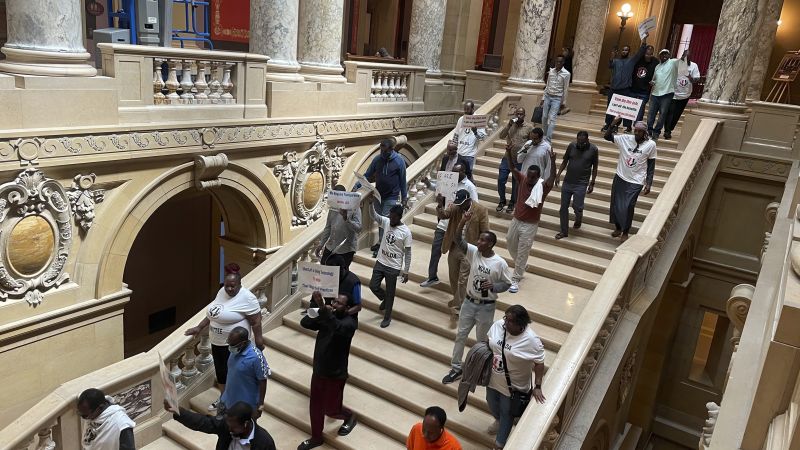Minnesota government officials have reached an agreement with rideshare companies Uber and Lyft to establish minimum wage standards for drivers. This deal comes after nearly a year of negotiations and threats of withdrawal from the companies over a proposed Minneapolis ordinance that aimed to provide increased worker protections for rideshare drivers. The ordinance, originally adopted in August 2023, set a minimum pay rate of $1.40 per mile and $0.51 per minute, but was delayed due to Lyft and Uber’s objections. State lawmakers have been working to find a compromise with the companies before a July 1 deadline.
The new agreement establishes a statewide minimum wage rate of $1.28 per mile and $0.31 per minute for rideshare drivers, which will override the higher rate initially proposed by the Minneapolis City Council. According to the state’s Democratic House Majority Leader Jamie Long, this will result in a 20% increase in pay for drivers in Minnesota. Additionally, the bill includes what Long describes as the “strongest insurance provision for drivers in the entire country.” The negotiations over pay had to strike a balance between addressing the needs of employees and the needs of Minnesotans who rely on rideshare services for transportation.
Despite concerns that the new minimum wage standards could lead to price increases for riders and drivers, Uber’s policy director Josh Gold stated that the compromise brokered by the Governor will allow the company to continue operating across the state. He applauded the thousands of riders and drivers who voiced their opinions by sending close to 100,000 emails to legislators, emphasizing that their voices were heard in the decision-making process. On the other hand, Lyft has not yet responded to CNN’s request for comment on the agreement.
Overall, the agreement between Minnesota government officials and rideshare companies Uber and Lyft represents a significant step towards establishing fair minimum wage standards and worker protections for rideshare drivers in the state. The negotiations, which have been ongoing for nearly a year, resulted in a compromise that addresses the needs of both drivers and the public who rely on rideshare services for transportation. The new statewide minimum wage rate of $1.28 per mile and $0.31 per minute is expected to provide a 20% increase in pay for drivers, along with strong insurance provisions to protect them.
The Minneapolis City Council’s initial proposal of a higher minimum wage rate was overridden by the new agreement, showcasing the importance of finding a balance between the demands of companies and the rights of workers. Despite concerns over potential price increases, Uber’s willingness to continue operating in the state indicates a level of satisfaction with the compromise reached. The voices of tens of thousands of riders and drivers who contributed to the decision-making process were acknowledged by Uber’s policy director, highlighting the impact of public advocacy in shaping policy decisions. As the agreement is implemented, it will be important to monitor its effects on the rideshare industry in Minnesota and the well-being of drivers.


